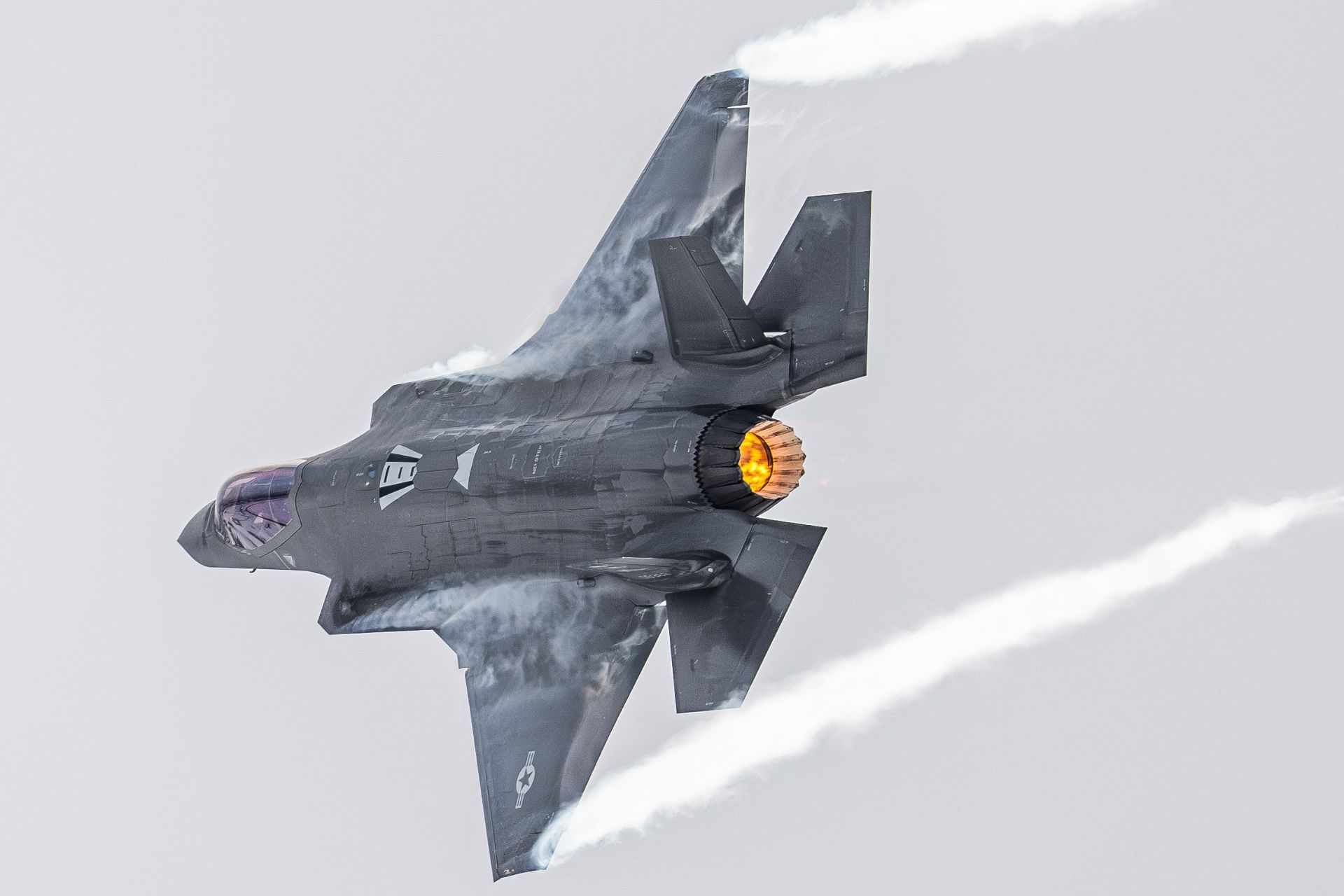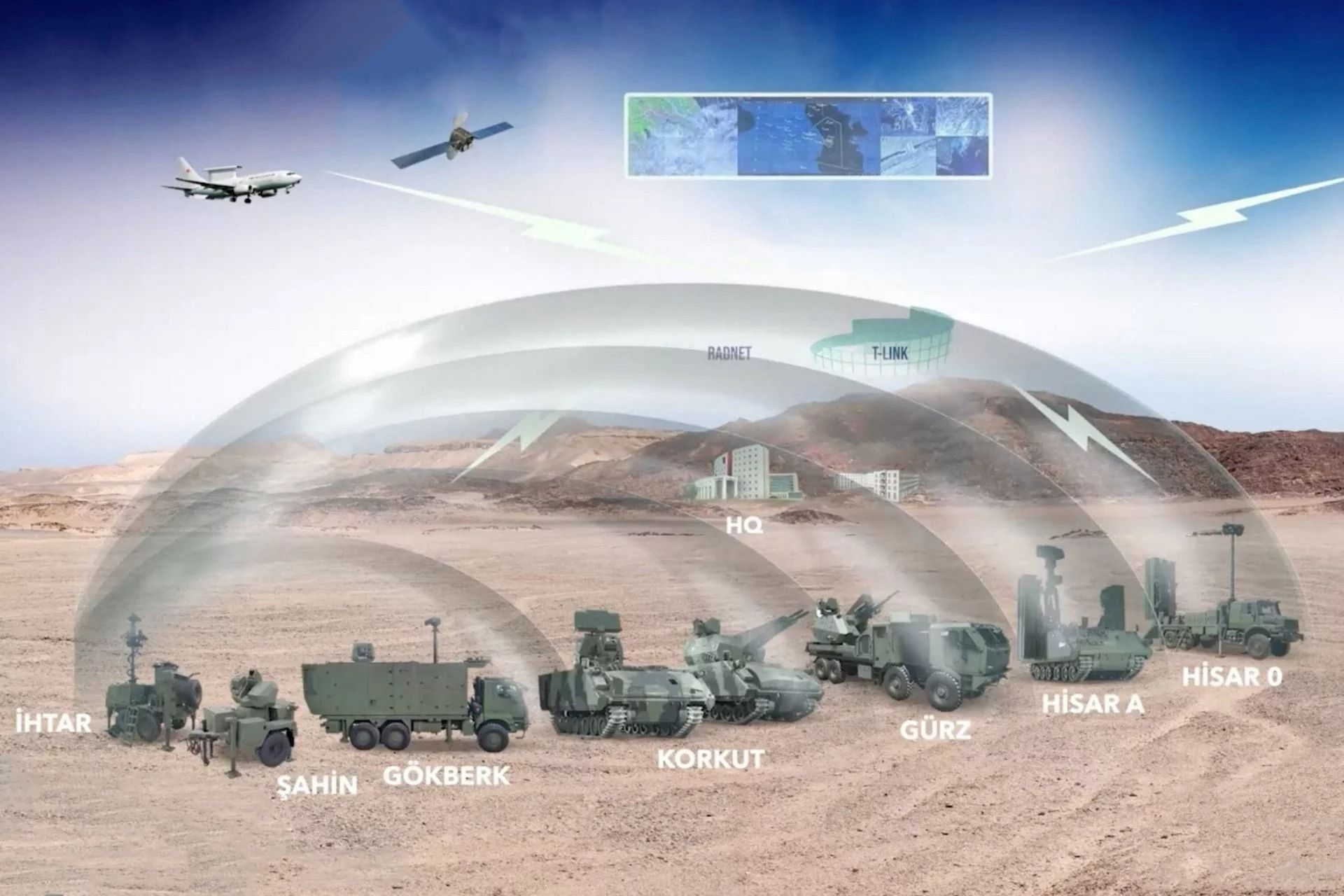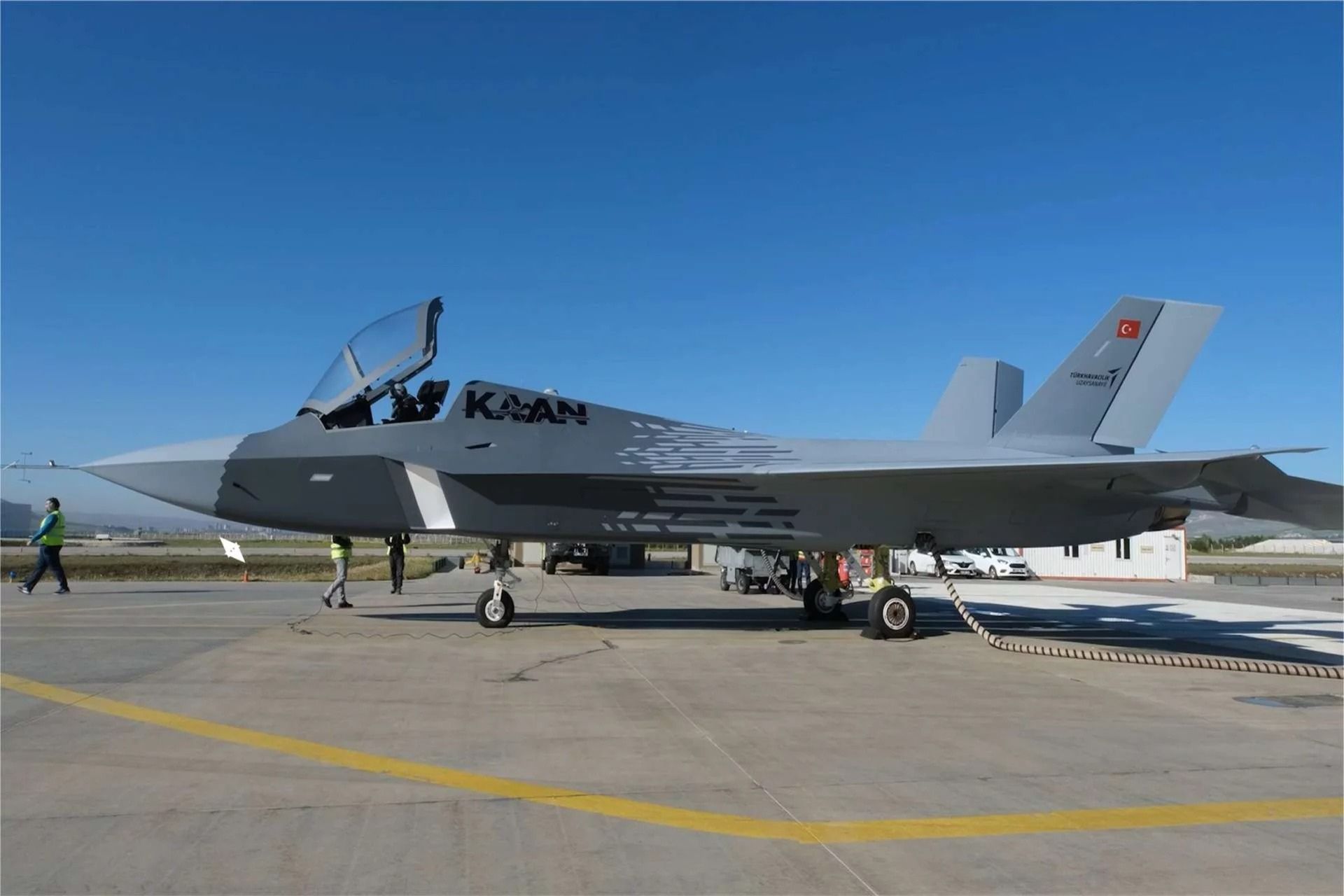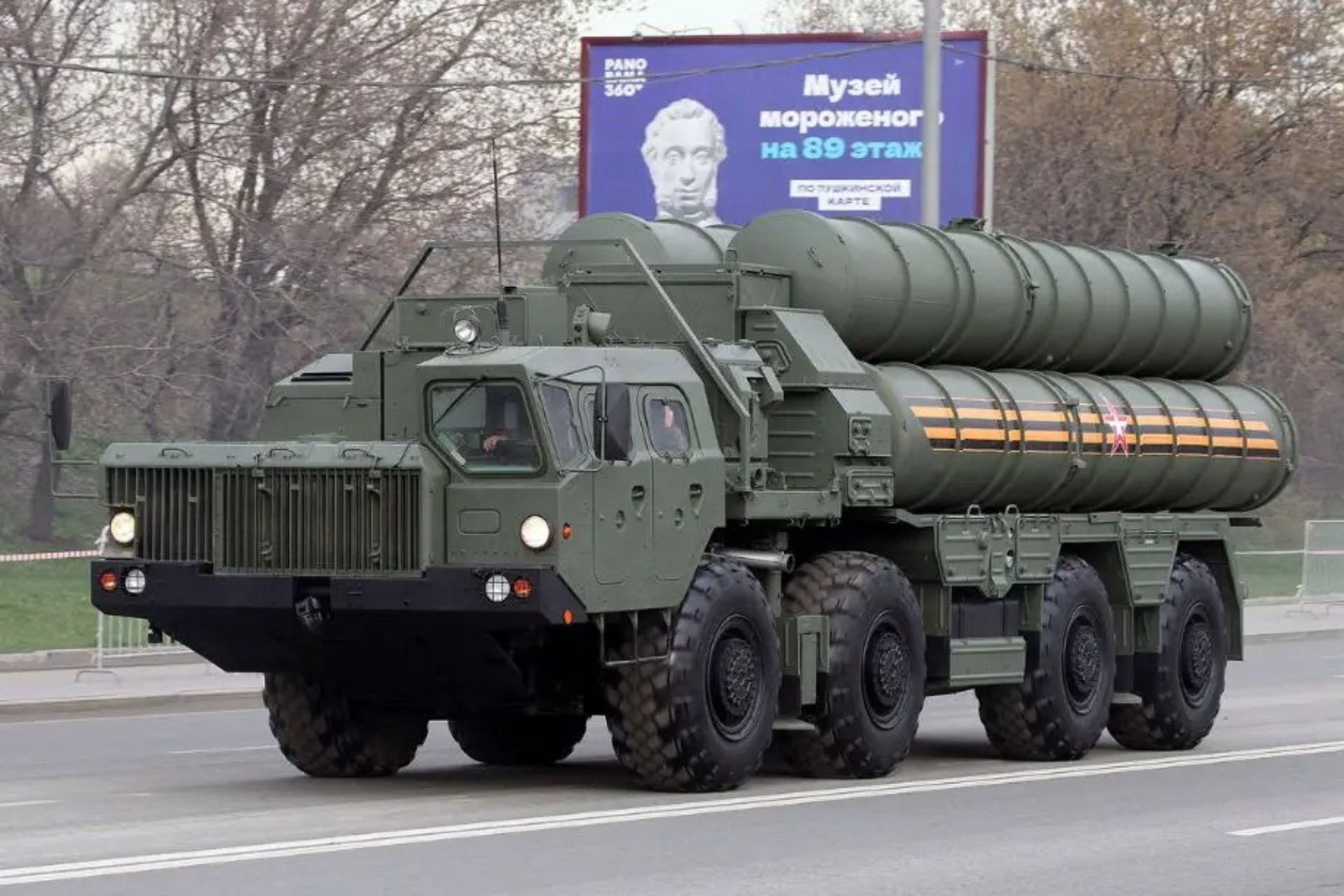Breaking News
Analysis: Selling the S-400 Air Defense System, Pathway for Türkiye to Rejoin F-35 Program?.
A recent proposal by a former Turkish minister has sparked discussions about the possibility of Türkiye rejoining the F-35 Joint Strike Fighter program. The idea involves Türkiye selling its Russian-origin S-400 air defense system, a move that could potentially improve its relations with the United States and other NATO allies. This proposal comes at a time when Türkiye's role within NATO and its defense strategy are under intense scrutiny. Although Türkiye is developing its defense industry, it can hardly afford to be without the F-35. Follow Army Recognition on Google News at this link

A U.S. Air Force F-35A Lightning II assigned to the F-35A Lightning II Demonstration Team performs a practice airshow performance at Hill Air Force Base, Utah, Jan. 11, 2023 (Picture source: US DoD)
The former minister, Cavit Caglar, who served in the Turkish government in the early 1990s, suggested that Türkiye consider selling the S-400 system to a third country, such as India or Pakistan. According to Caglar, this could pave the way for improved relations with the United States and possibly lead to Turkey’s reintegration into the F-35 program. Despite the initial enthusiasm surrounding the S-400 deal with Russia, Türkiye reportedly received less than expected from the agreement, with ongoing concerns about the system's compatibility with NATO and its strategic value.
Background: The US Officially Removes Turkey from the F-35 Program
The U.S. Department of Defense officially notified Turkey of its removal from the F-35 Joint Strike Fighter program following its acquisition of the Russian S-400 missile defense system. This decision, which nullified the 2007 Joint Memorandum of Understanding, left Turkey excluded from the program, with the remaining participants being the U.S., U.K., Italy, Netherlands, Australia, Denmark, Canada, and Norway.
Turkey had initially planned to purchase 100 F-35 fighter jets and was scheduled to receive six in 2018, pending pilot training. However, the U.S. delayed delivery due to concerns that the S-400 system could compromise the F-35's advanced stealth capabilities. This led to Turkey's exclusion from the program, the redirection of eight jets intended for Turkey to the U.S. Air Force, and the halt of Turkish contributions to the F-35 production line, with new suppliers replacing them.
The U.S. and NATO deemed the S-400 system incompatible with the F-35, fearing that its operation alongside the aircraft could allow sensitive information to fall into Russian hands. This exclusion left Turkey with an advanced but inactive air defense system and raised questions about its future within NATO.
Following its removal from the F-35 program, Turkey strengthened ties with Russia, heightening diplomatic tensions. Some analysts, like James Marques, suggest Turkey could rejoin the F-35 program if Erdoğan were to lose power, but this would require abandoning the S-400 system, which remains the primary obstacle.
The U.S. has sought access to the S-400 for intelligence purposes or to transfer it to Ukraine, but it is unlikely to resume F-35 sales to Turkey as long as the Russian system is in place. Turkey’s role as an intermediary between Russia and the West, and its joint projects with Moscow, such as a nuclear power plant, further complicate its position.
Since its exclusion, Turkey has faced significant financial and strategic losses. The country invested $1.25 billion in the F-35 program and was expected to generate $9 billion in revenue as part of the supply chain. Additionally, six jets produced for Turkey were never delivered. Resolving this issue with the U.S. is crucial, and selling the S-400 could be a key step toward reconciliation.

This air Defense system will include an integrated shield with multiple platforms, network-centric and supported by artificial intelligence, covering vast territories to provide an impenetrable defense over Turkish airspace (Picture source: Aselsan)
The S-400, a defense system sidelined by the Turkish military in favor of the Steel Dome
Although Turkey received the S-400 air defense system, it has not fully integrated it into its defense strategy. As of December, the system remains non-operational and is excluded from Turkey's "Steel Dome," a multi-layered air defense system under development. This hesitation reflects Turkey's ongoing challenge of balancing its commitments to NATO with its relationship with Russia. The exclusion of the S-400 from the Steel Dome project may signal a strategic shift, emphasizing Turkey's focus on indigenous defense technologies to protect its airspace.
The Steel Dome project, approved by the Defense Industry Executive Committee and led by Aselsan, aims to integrate multiple layers of domestic air defense systems into a unified, AI-supported network, providing real-time data and comprehensive airspace protection. The system will feature four layers: very short-range, short-range, medium-range, and long-range defenses. Many components, such as the Korkut, Gökberk, and Hisar systems, are already in the military inventory.
Despite significant investment, the S-400 remains inactive, stored in an undisclosed location, raising questions about the logic of the purchase. This situation has sparked debate in Turkey, with some suggesting that selling the S-400, possibly to countries like India, could resolve tensions with NATO and help Turkey recoup part of its investment. As Turkey continues to navigate its complex relationships with NATO and Russia, the Steel Dome project could mark a new chapter in its defense strategy.

Turkish Aerospace Industries' KAAN fifth-generation fighter jet (Picture source: Turkish Aerospace)
KAAN: A Fifth-Generation Fighter Jet Unable to Replace the F-35
At the Defence Service Asia (DSA) 2024 event in Malaysia, Turkish Aerospace Industries (TAI) unveiled its fifth-generation stealth fighter jet, the KAAN. This presentation followed the successful second test flight of the KAAN prototype on May 7, 2024, where the aircraft flew for 14 minutes, reaching a speed of 230 knots and an altitude of 10,000 feet. Launched in 2016 with an investment of $1.18 billion, the KAAN project aims to modernize Turkey's air fleet and strengthen the national defense industry, with a strong emphasis on local production and engineering.
The fighter, developed in collaboration with international partners such as BAE Systems and Rolls-Royce, is equipped with the EJ200 engine for supercruise capabilities and can reach speeds of Mach 1.8 with a service ceiling of 55,000 feet. However, it is difficult to consider the KAAN a credible replacement for Turkey if it cannot also acquire the F-35.

The S-400 missile system during the nighttime rehearsal for Moscow's 2022 Victory Day Parade (Picture source: Vitaly Kuzmin)
Cavit Caglar's proposal highlights the complex dynamics of Turkey's foreign policy and defense strategy. He acknowledged that any decision to sell the S-400 would require careful negotiation with Moscow, given Turkey's current diplomatic ties with Russia. However, he also emphasized that, as a NATO member, Turkey cannot deploy the S-400 in a way that threatens the security of the alliance.
India has emerged as a potential buyer for Turkey's S-400 system. India has already purchased several S-400 units from Russia and could be interested in acquiring additional systems, especially if they could be delivered sooner than expected. Such a transaction could solve multiple issues: it would allow Turkey to rid itself of a controversial system, strengthen its relations with NATO, and provide India with the defense capabilities it seeks.
In conclusion, the proposal to sell the S-400 represents a significant opportunity for Turkey to reconcile with the United States and NATO. It also highlights the broader geopolitical challenges Turkey faces as it navigates its role within the alliance while maintaining relationships with countries like Russia. The coming months will likely see further developments as Turkey considers its options and the potential implications for its defense strategy and international relations.
The future will determine whether Turkey can regain the trust of the United States and rejoin the F-35 program, a paradoxical situation given that both countries are NATO partners.


























